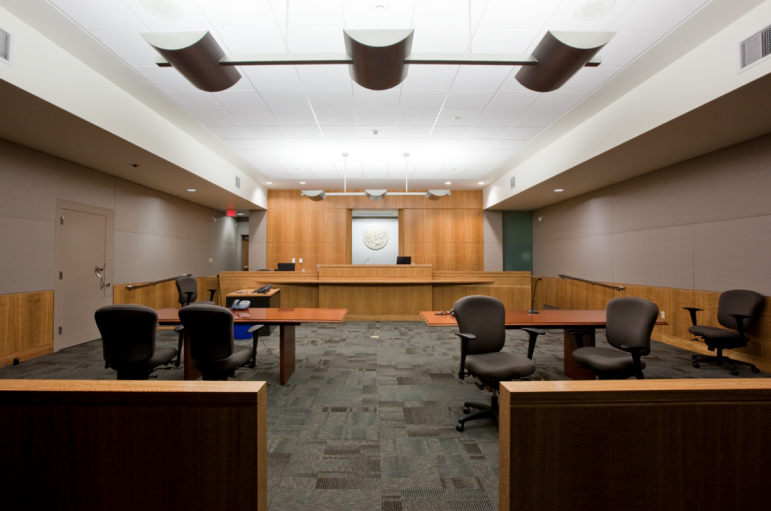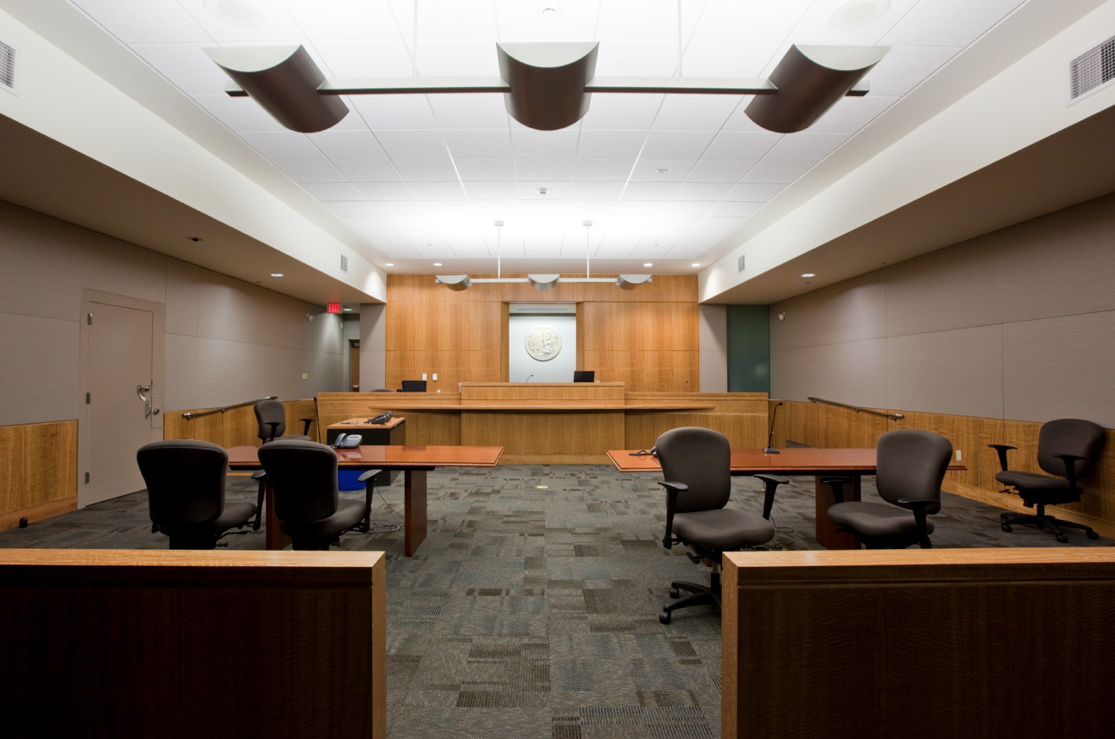
Richard Ross / www.juvenile-in-justice.com
Alameda County Juvenile Court in San Leandro, Calif.juvenile-in-justice.com
From San Jose Mercury News / (MCT)
California is no stranger to holistic medicine, holistic massage or holistic music (think soothing nature sounds). There's even a pet store in Berkeley called the Holistic Hound.
Now comes a new twist on the notion -- holistic criminal defense. Touchy-feely as it may sound, none other than the U.S. Department of Justice is supporting efforts to spread the approach nationwide, including to enthusiastic Bay Area public defenders.
Born partly out of a conference in the late 1990s at Harvard's Kennedy School of Government, holistic defense in its most elaborate form uses teams of criminal, civil and family defense lawyers, social workers, parent advocates, investigators and community organizers to address the needs -- legal and otherwise -- of defendants who can't afford their own lawyers.
The idea is to keep people from coming back into the criminal justice system -- thus save taxpayers money -- by limiting the consequences that can arise from even a misdemeanor arrest, such as deportation and the breakup of families, loss of a job, revocation of an employment license or eviction from public housing.
"An arrest is never just an arrest -- it can explode someone's life," said Robin Steinberg, founder of the Bronx Defenders, the nonprofit agency of public defenders leading the holistic defense movement. "Even when you get the not-guilty verdict, you don't hug them and send them into the night. That's when the work begins."
From Rhode Island to Texas, and to Alameda, Contra Costa and San Francisco counties, the general principle has started to catch on, especially the notion of teaming social workers with lawyers.
However, some supporters say holistic defense faces a major obstacle -- lack of funding for even basic services, and not just in poor parts of the country such as the South.
"Can the Bronx Defenders' model be replicated across the country?" said Mark Stephens, chief public defender in Knoxville, Tenn., who attended the original Harvard conference. Though he supports holistic defense and has eight social workers on his staff, he said, "I don't see it happening."
Hard data is still scarce on whether the approach keeps people from reoffending. But some public defenders say California must innovate because a federal court order forcing it to reduce prison overcrowding prevents the system from merely locking people up.
"We're already moving in that direction," said Santa Clara County Public Defender Molly O'Neal, adding that some form of holistic defense "is the next step."
Public defenders in Contra Costa, Alameda and San Francisco counties already are a step ahead of Santa Clara County. San Francisco has seven social workers for juvenile clients and six for adults. Alameda County is interviewing applicants right now for four such spots. Contra Costa hired a social worker for the first time more than two years ago and is adding another now with funds from a private foundation.
"We don't have the hard stats yet," said Robin Lipetzky, Contra Costa's head public defender. "But we know these services are desperately needed and can't help but make a difference."
Offering services under the auspices of the public defender makes sense, proponents say; clients trust the process because team members are bound by attorney-client privilege.
In contrast to the more affluent Bay Area counties, for instance, Fresno County public defenders carry about 1,000 felony cases a year, giving them an average of only about two hours and five minutes per case. Most of the attorneys there recently signed a petition protesting those excessive case loads.
The Bronx Defenders, with the help of the latest in a series of federal grants, visited the public defender's office in Santa Clara County last month to present the approach. The training followed a visit by the office's leaders this past fall to the Bronx to see the teams in action.
The first clue that the Bronx Defenders is a whole different animal than the typical public defender's office is that the receptionist sits in the open, rather than encased behind a thick security window. The private nonprofit also operates a 24-hour hotline, provides walk-in service five days a week, and holds an annual block party and a Thanksgiving feast.
Steinberg founded the nonprofit about 16 years ago with just seven other lawyers. Now, the staff of 215 handles about 30,000 cases a year, winning 76 percent of its trials.
Among the places the group has visited to spread the word is the public defender's office in Reno, which now uses college interns studying social work or criminal justice to assess clients and place those who need treatment in mental health and substance abuse programs.
In Santa Clara County, some dedicated public defenders already practice a form of holistic defense by personally going the extra mile for their clients. One lawyer paid a the motel bill for a recently released "three-striker" because the man just got out of prison after 18 years and had nowhere else to go. He also gave him a laptop computer and helped him find a transitional housing shelter for veterans. The newly freed ex-convict, who asked that his name not be used because his co-workers don't know his background, now earns more than $80,000 a year with overtime at a local factory.
Another public defender just last week spent more than a day helping a client who needs bottled oxygen and a wheelchair get medical care and a place to live.
"I didn't go to school for that," said Michelle Vasquez, the lawyer. "I would absolutely rather have a social worker do this."
Her wish may come true. The county's re-entry center is asking the Board of Supervisors to take a formal step toward holistic defense by spending $300,000 in Measure A tax funds on two social workers to serve public defender clients.
But competition is fierce for the $9.7 million in annual Measure A revenue. So far, the board has received 95 requests totaling more than $40 million. The board may balk at funding new programs at a time when money is still relatively tight. But re-entry services director Javier Aguirre said the social workers could save the county money by keeping people out of jail.
Contact Tracey Kaplan at 408-278-3482. Follow her at Twitter.com/tkaplanreport.
———
©2014 the San Jose Mercury News (San Jose, Calif.)
Visit the San Jose Mercury News (San Jose, Calif.) at www.mercurynews.com
Distributed by MCT Information Services

